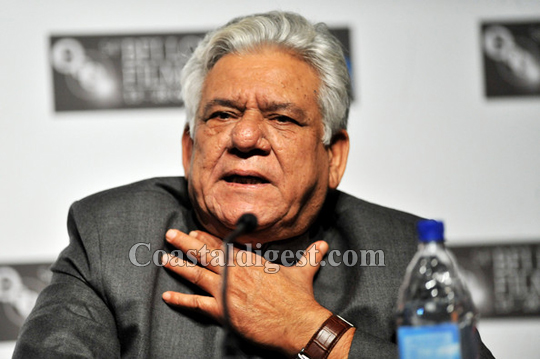You might have come across instances of some television channels trying to malign some individuals by running ‘out-of-context’ and ‘doctored’ video clips of their speeches. In the age of social media, common man too has learnt the art of fooling people by spreading edited video clips.
 This time an out-of-context video clip of a television interview of veteran Bollywood actor Om Puri has gone viral, wherein he claims that the entire world should accept Islam and there should not be any other religion.
This time an out-of-context video clip of a television interview of veteran Bollywood actor Om Puri has gone viral, wherein he claims that the entire world should accept Islam and there should not be any other religion.
The viral video comes to an abrupt end when the actor says that Islam is the biggest religion. The miscreants have carefully chopped the context of the speech.
In fact, Om Puri was trying to say that an impression has been created that Muslims are extremists and that they think that entire world should accept Islam and there should be no other religion. That is a false impression about Muslims, he added.
In the same interview, the actor also said that he is a non-practicing Hindu and he will not object if his some wants to become a Muslim.
Fake tweets
To support the out-of-context video claim, the miscreants also have created fake tweets of Om Puri, where he claims that he has embraced Islam. Photoshopped screen shots of such fake tweets also have gone viral on WhatsApp and other social media.
Om Puri has not yet lodged any compliant against the miscreants, who made him a ‘Muslim’ overnight.




Comments
Dear Dsouza, Jesus is not a God infact he is the messenger of God like prophet Mohammad.
Worship only the creator, and respect his creations.
Honest people should realize , this tactics (Out of context) has been using by the HATER of HUMANITY to demonize the Innocent people of the earth for long time... and people are recognizing it and understood the real terrorist of our society..
Do not accept Islam because he said first know for yourself what Islam is and what it teaches
We all need peace & Lord Jesus promised it to those who believe on him.
Understanding our creator and obey him alone is the message of islam
Underdtanding our creator and worship him alone is the message of Islam
Context or out of context. But it true.
Even scientists could not disagree.
Many scientists too embraced islam.
Quran speaks about science long years ago. This is definitely word of God.
Most of the cheddis are expert in spreading their lies by providing out of context messages to public... If the public is not Alert, they can Fool even the intelligent...people of India...
Since this govt came... they have fooled many and if people still dont understand their evil ways and follow blindly ... its not far that they will not shy away to fool you too... (just like they killed their own Bjp member in the name of Cow recently...
Send jobless goons learnt editing....may be from Singapore or Thailand....
Add new comment